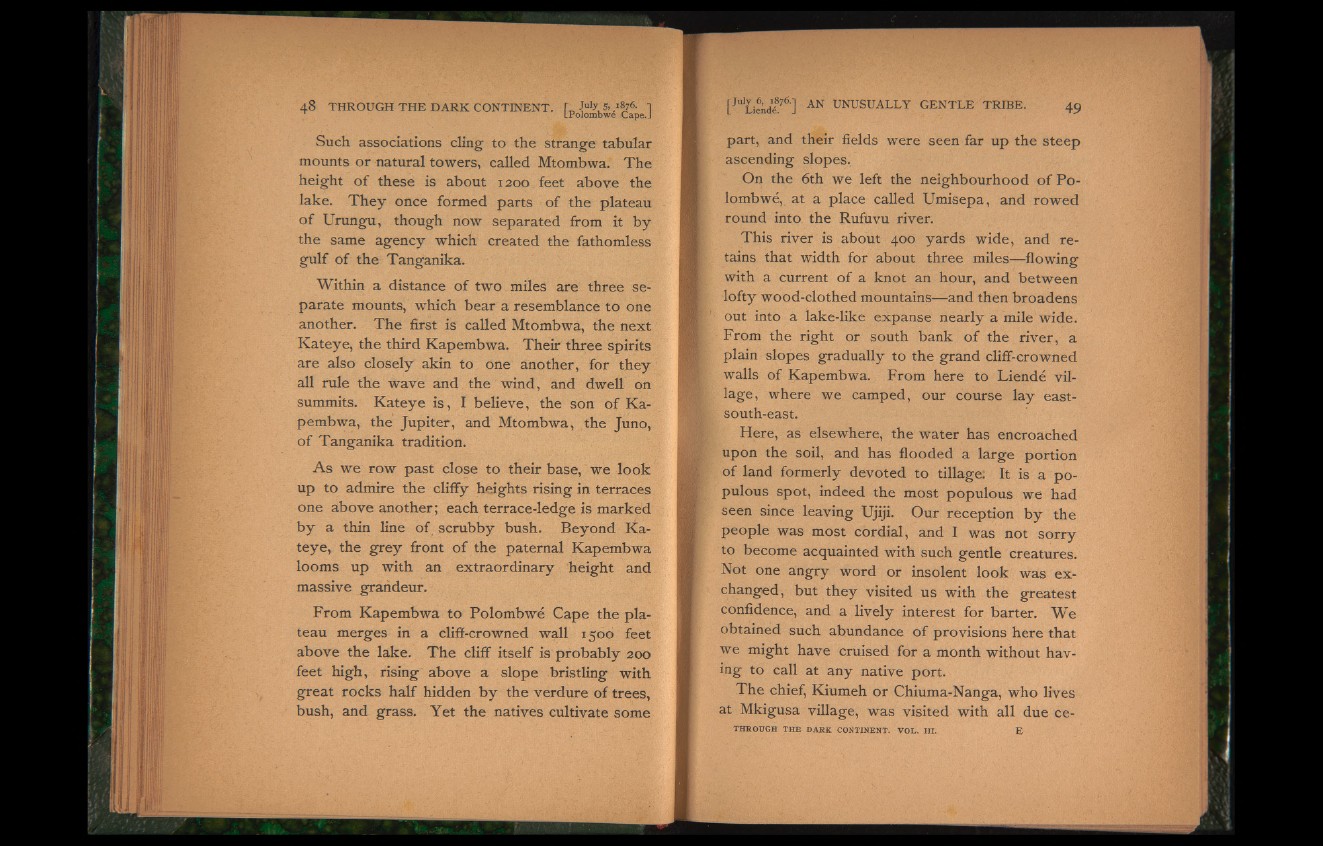
Such associations cling to the strange tabular
mounts or natural towers, called Mtombwa. The
height of these is about 1200 feet above the
lake. They once formed parts of the plateau
of Urungu, though now separated from it by
the same agency which created the fathomless
gulf of the Tanganika.
Within a distance of two miles are three separate
mounts, which bear a resemblance to one
another. The first is called Mtombwa, the next
Kateye, the third Kapembwa. Their three spirits
are also closely akin to one another, for they
all rule the wave and the wind, and dwell on
summits. Kateye is , I believe, the son of Kapembwa,
the Jupiter, and Mtombwa, the Juno,
of Tanganika tradition.
As we row past close to their base, we look
up to admire the cliffy heights rising in terraces
one above another; each terrace-ledge is marked
by a thin line of scrubby bush. Beyond Kateye,
the grey front of the paternal Kapembwa
looms up with an extraordinary height and
massive grandeur.
From Kapembwa to Polombwe Cape the plateau
merges in a cliff-crowned wall 1500 feet
above the lake. The cliff itself is probably 200
feet high, rising above a slope bristling with
great rocks half hidden by the verdure of trees,
bush, and grass. Yet the natives cultivate some
[JulLende876] AN UNUSUALLY GENTLE TRIBE. 49
part, and their fields were seen far up the steep
ascending slopes.
On the 6th we left the neighbourhood of Polombwe,
at a place called Umisepa, and rowed
round into the Rufuvu river.
This river is about 400 yards wide, and retains
that width for about three miles— flowing
with a current of a knot an hour, and between
lofty wood-clothed mountains— and then broadens
out into a lake-like expanse nearly a mile wide.
From the right or south bank of the river, a
plain slopes gradually to the grand cliff-crowned
walls of Kapembwa. From here to Liende village,
where we camped, our course lay east-
south-east.
Here, as elsewhere, the water has encroached
upon the soil, and has flooded a large portion
of land formerly devoted to tillage: It is a populous
spot, indeed the most populous we had
seen since leaving Ujiji. Our reception by the
people was most cordial, and I was not sorry
to become acquainted with such gentle creatures.
Not one angry word or insolent look was exchanged,
but they visited us with the greatest
confidence, and a lively interest for barter. We
obtained such abundance of provisions here that
we might have cruised for a month without having
to call at any native port.
The chief, Kiumeh or Chiuma-Nanga, who lives
at Mkigusa village, was visited with all due ce-
THROUGH THE DARK CONTINENT. VOL. III. E